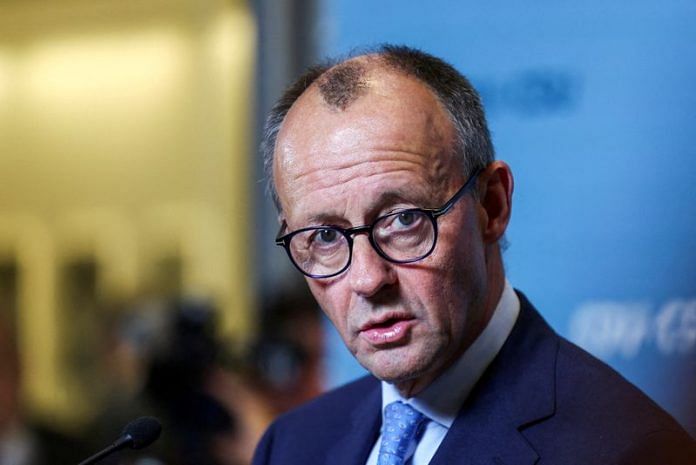BERLIN (Reuters) – German opposition leader Friedrich Merz, tipped to become chancellor in next month’s election, said Germany would spend more on defence but would not commit to a NATO defence spending target as called for by U.S. President-elect Donald Trump.
“We first really have to reach the 2% lower limit in Germany. We are not there yet,” Merz told broadcaster Bayerischer Rundfunk on Wednesday in response to Trump’s call for NATO members to spend 5% of gross domestic product on defence.
“The 2, 3 or 5% (targets) are basically irrelevant, the decisive factor is that we do what is necessary to defend ourselves,” said Merz, leader of the opposition Christian Democrats and favoured to succeed Olaf Scholz.
Trump has frequently complained that most NATO members are not paying their fair share, and he floated demanding an increase in NATO defence contributions during the campaign. NATO estimated that 23 of its 32 members would meet its goal of spending 2% of GDP in 2024.
Markus Soeder, leader of the Christian Democrats’ Bavarian sister party, the Christian Social Union (CSU), who had chancellor ambitions before ceding to Merz as the conservative candidate, told broadcaster ntv/RTL that military spending must be increased significantly, to “well over 3%.”
Germany is only able to meet the current NATO target of 2% due to a special fund, but there is uncertainty about how to maintain that spending level when the fund is exhausted in 2028.
Pressure from Trump and a more aggressive Russia have made defence spending a key campaign issue ahead of parliamentary elections in Germany set for Feb. 23, about a month after Trump takes office.
Merz has said that Germany can cover future defence spending increases without a special fund, while German Economy Minister Robert Habeck, who is the Greens’ chancellor candidate, said last week that Germany should aim for a target of 3.5%, which he said could only be reached by financing through loans.
Dirk Wiese, deputy leader of the parliamentary group of Scholz’s Social Democrats, told RTL/ntv that Trump’s demand was “complete madness.”
Wiese also said that he did not support Habeck’s proposal, echoing Scholz, who called it “somewhat half-baked.”
(Reporting by Andreas Rinke and Miranda Murray, editing by Rachel More and Ros Russell)
Disclaimer: This report is auto generated from the Reuters news service. ThePrint holds no responsibility for its content.






